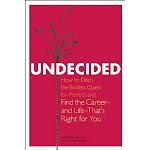Byrne ends the essay with what he hopes never to see, but in the where-we-should-go category, he outlines a digital venture launched by Business Week last fall that not only takes advantage of all technology has to offer, but also keeps the title current. He writes:
"In early September, we launched one of the most ambitious efforts ever to both stretch the BusinessWeek brand and to reinvent ourselves. We call it the Business Exchange. It allows our readers to create and organize around their own topics of interest, from active investors to youth advertising. The moment a topic is created by any user at bx.businessweek.com, a Web page pops up with links to stories and blog posts on that subject from all over the Web. No preference is given to BusinessWeek editorials. A story by one of our journalists is treated no differently than one from Forbes, Fortune, or The Economist or, for that matter, The New York Times, The Wall Street Journal, or The Washington Post. A blog post by a BusinessWeek blogger, moreover, gets the same treatment as one from Henry Blodget at Silicon Alley Insider or John Battelle at Federated Media.
"The 'front page' or 'cover' of each of these topic sites is not determined by an editor but by the community of readers. Whenever a user adds, reads, saves, shares or comments on a story or blog post, that activity is noted by a software algorithm that then places the content on what is essentially the front page. That way, only stories and blogs deemed the most active or useful are shown to the reader, who benefits from the wisdom of the crowd.
"All the members of each topic community are recognized—by photo, profile and their contributions to the network. Indeed, if you admire a member of your community, you can peer over his shoulder to see what stories he is reading, saving, adding or commenting on—if he chooses to keep that activity public.
"Our reporters and editors do not report, write and edit for the Exchange. But they do help to curate the content, adding relevant stories, blog posts, white papers, academic reports, and other reference materials to each topic. If you cover the stock market and an important story breaks on the New York Stock Exchange, you’re expected to immediately search the Web for the best coverage and add it to our topic on Wall Street. A journalist might pose a question or make a comment to help fuel a conversation on the latest news and analysis rather than pick up the phone and start calling his or her sources.
"Of course, this is no replacement for original explanatory journalism that remains at the core of what we do at BusinessWeek. It follows the dictum by Jeff Jarvis, the CUNY journalism professor and blogger, who advises media to 'Do what you do best. Link to the rest.' In a world where time-constrained professionals are trying to keep up with an overabundance of information in their specific fields, the Exchange serves a highly valuable purpose. No less important, it connects like-minded people from every corner of the world in an online community that enriches the journalism at the center."

 (University of Mississippi journalism-department chairman Samir Husni) has to say about magazine launches through November of 2008: only two fewer new titles than last year with the second half of the year, when the economy was in the tank, the strongest.
(University of Mississippi journalism-department chairman Samir Husni) has to say about magazine launches through November of 2008: only two fewer new titles than last year with the second half of the year, when the economy was in the tank, the strongest.






.JPG)




